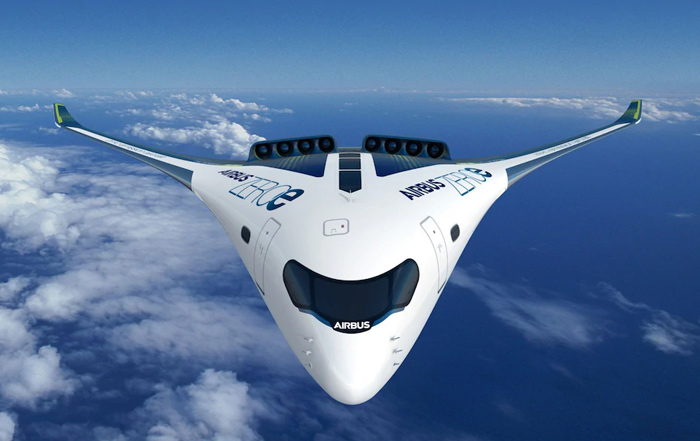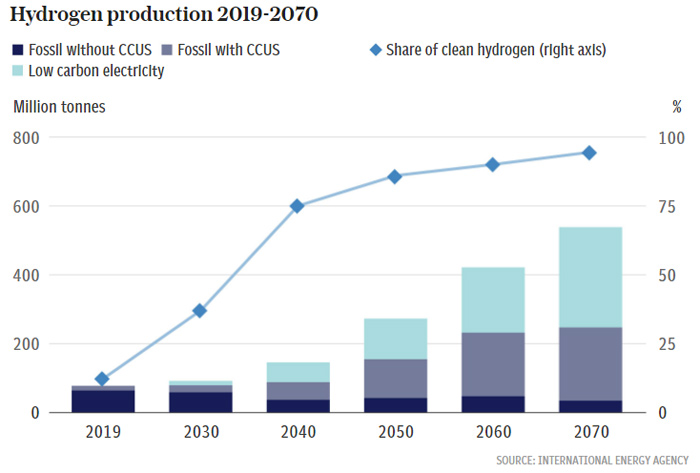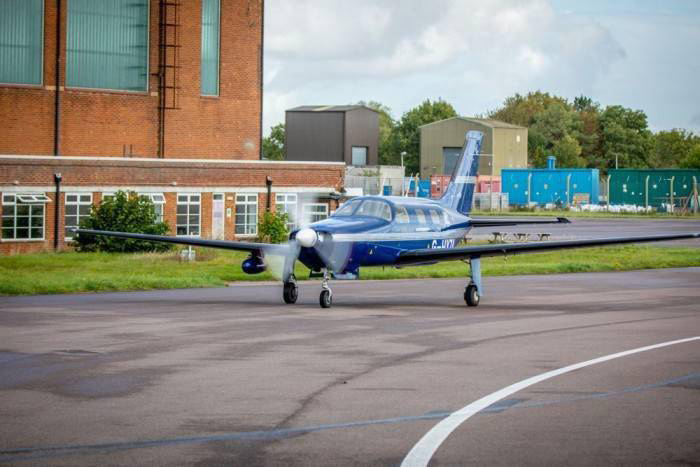零排放!氢动力飞机将于2030年左右投入商业使用 Hydrogen-powered planes will be commercially viable by the 2030s, says Airbus
中国日报网 2020-10-26 08:56

你可曾想过飞机有朝一日能实现零排放吗?这一天离我们不远了。空客公司日前公布了三款氢动力飞机的视觉概念图,并表示氢动力飞机将在2030年到2040年间投入商业使用。

Zero-emission large passenger aircraft powered by hydrogen will be technically feasible in five years, according to Airbus, but they will not enter service for at least a decade as the price of the fuel needs to come down.
欧洲飞机制造集团空客公司称,零排放的大型氢动力客机将于五年内扫清技术障碍,但由于氢燃料的价格因素,还需要至少十年才能投入使用。
The prediction comes from Glenn Llewellyn, vice-president of zero-emissions technology at the pan-European plane-maker.
空客公司零排放技术部副总裁格伦·卢埃林做出了这一预测。
He said that while Airbus planned to demonstrate hydrogen-powered aircraft in 2025, “over the next 10 years, hydrogen won’t be more economic than the fossil fuel equivalent”.
他表示,尽管空客公司计划于2025年展示氢动力飞机,但是“未来十年内,氢燃料不会比化石燃料更省钱”。
For passengers to be flying genuinely emissions free aboard hydrogen-powered planes - which emit only water and heat - their fuel needs to come from hydrogen produced via renewable sources such as wind and solar, he added.
他补充道,要让乘客坐上真正零排放(只排放水和热)的氢动力飞机,就必须使用以风能和太阳能等可再生能源为动力生成的氢燃料。
In an interview ahead of the BloombergNEF London Summit, Mr Llewellyn said: “We already see massive increases in the amount of renewable energy being produced across the world. Wind energy production has multiplied by two over the last five years and solar energy production has multiplied by four.”
在彭博新能源财经伦敦峰会开幕前接受采访时,卢埃林称:“我们已经看到世界各地产出的可再生能源在大量增加。过去五年风能产出量增加了一倍,太阳能产出量增加了三倍。”

A further hurdle is building up the ecosystem that hydrogen aircraft, along with other forms of transport, will need. This ranges from creating the fuel from electrolysis to split water into hydrogen and oxygen powered by renewable energy, to the actual transport of the gas and fuelling systems for it at airports.
还有一个要跨越的障碍,就是建立氢动力飞机和其他交通工具所需的生态系统,包括以可再生能源为动力将水电解成氢和氧的氢燃料生产,运输氢燃料的交通工具以及机场的燃料补给系统。
However, Mr Llewellyn predicted that there was enough interest in the sector to make this happen.
但是,卢埃林预测,业内对氢动力飞机的浓厚兴趣将助其实现。
He added: “There are a number of independent institutes that have mapped out how hydrogen costs can come down over the next decades. We see a 30pc reduction in renewable hydrogen costs in 2030 compared to where it is today, and a 50pc reduction in renewable hydrogen costs by 2050.
他补充道:“关于未来几十年如何降低氢燃料成本,许多独立机构已经做出了规划。我们预测,到2030年可再生氢燃料的成本将比现在降低30%,到2050年将降低50%。”
"They are exactly the kind of cost figures that are interesting for us, because it makes zero-emission aviation commercially viable in the 2030s.”
“这一成本数据对我们很有吸引力,因为它使得零排放飞机在2030年后具有商业可行性。”
Last month UK-based ZeroAvia conducted the world’s first flight of a commercial-grade aircraft powered by a hydrogen fuel cell when it flew a six-seater Piper Malibu plane from Cranfield University’s airport.
上个月英国飞机公司ZeroAvia举行了世界首架氢燃料电池驱动的商用级别飞机的试飞。这架有六个座位的派珀马里布飞机从克兰菲尔德大学的机场起飞。

The aircraft did two circuits of the Bedfordshire airfield, reaching 1,000ft and 100 knots, during the eight-minute flight.
在这次时长8分钟的试飞中,该飞机围绕贝德福德郡的机场飞了两圈,飞行高度达到1000英尺(305米),航速达到100节(185公里/小时)。
A few days before, Airbus unveiled a series of design proposals for hydrogen-driven aircraft, including a “blended wing” concept that provides greater storage capacity.
几天前,空客公司发布了一系列氢动力飞机的设计方案,包括提供更大存储容量的“翼身融合”概念。
This design could be key to hydrogen-powered aircraft as the fuel is less energy dense than conventional fuel and so requires more space to match performance of existing aeroplanes.
这一设计对氢动力飞机可能很关键,因为氢燃料的能量密度没有传统的航空燃油那么大,所以要使用更大体积的氢燃料才能匹配现有飞机的性能。
英文来源:每日电讯报
翻译&编辑:丹妮

















 英语点津微信
英语点津微信 双语小程序
双语小程序